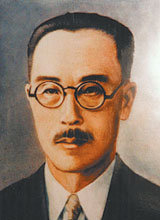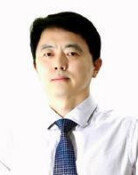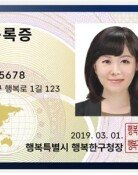Independence fighter Hong Jin led ‘provisional representatives’ meeting’ in Incheon
Independence fighter Hong Jin led ‘provisional representatives’ meeting’ in Incheon
Posted May. 11, 2019 07:38,
Updated May. 11, 2019 07:38

The obituary of independence fighter Hong Jin (1877∼1946) was published in the September 10, 1946 issue of The Dong-A Ilbo. Hong served as the Prime Minister of the Shanghai, China-based provisional government of Korea in 1926, before serving three terms as the Speaker of the provisional congress, which functioned as the provisional government’s legislature.
Hong Jin formed a special relationship with Incheon because of a “meeting of representatives of 13 provinces” she sought to organize before departing for Shanghai. Being an attorney, he was involved in setting a plan to establish a provisional government in Hanseong (Seoul) as liaison when the March 1st Independence Movement occurred in 1919.
The “meeting of representatives of 13 provinces” at Manguk Park (currently Freedom Park) in Incheon on April 2, 1919 was attended by Hong Jin, protestant church preacher Lee Gyu-gap, and Cheondo Religion leader Ahn Sang-deok. It was the first preparatory meeting that was assembled to establish the Hanseong provisional government. More than 20 provincial representatives and religious leaders, who had been secretively informed about the gathering, arrived at Manguk Park one after another. They had promised to wrap their thumb with white paper or cloth to ensure the participants can recognize each other.
The representatives decided to organizea national convention, found a provisional government, and urge countries toapprove the independence of Joseon (Korea). Originally, they planned that the representatives of 13 provinces would gather at Bongchungwan in Seorin-dong, Jongno-gu in Seoul at noon on April 23, declare the founding of a provisional government, and stage a rally, but the plan to hold a ceremony to declare the founding of the provisional government was revealed in advance and the planned ceremony at Bongchungwan failed to take place. Instead, they declared the founding of the Hanseong Provisional Government by distributing flyers, and participants successfully led a large-scale protest rally (“March 1st Independence Movement in Incheon andthe Founding of the Hanseong Provisional Government, by Yang Yoon-mo).
After Korea’s liberation from Japan’s colonial rule in 1945, Hong returned to Korea, and was elected the Speaker of the national emergency convention, but died of heart disease the followingyear. He was buried at his family cemetery at the foot of Mount Munhak,Incheon, in a funeral ceremony chaired by independence fighter Kim Koo. His remains were moved to the Seoul National Cemetery in October 1994.
Jee-Young Kim kimjy@donga.com






